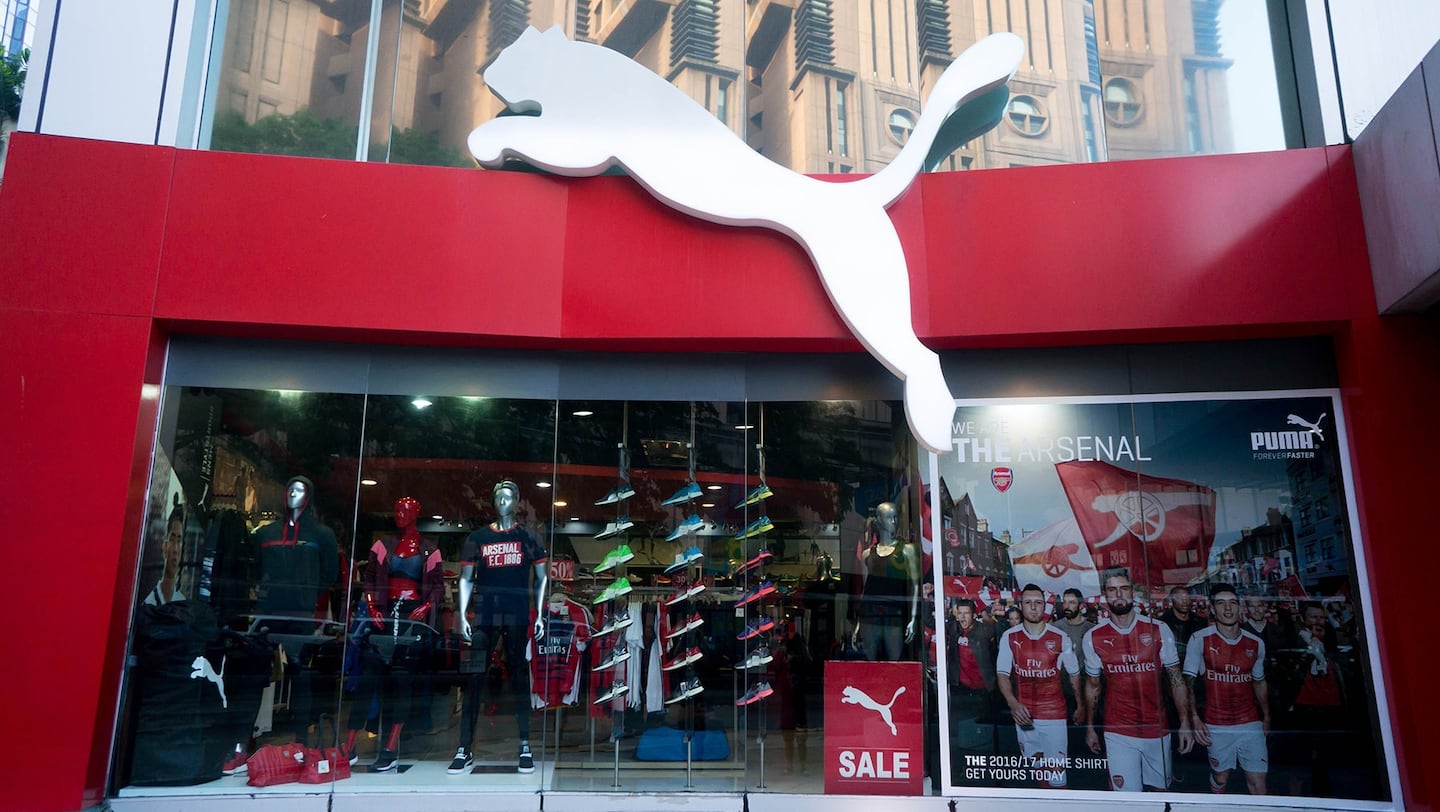
The Business of Fashion
Agenda-setting intelligence, analysis and advice for the global fashion community.

Agenda-setting intelligence, analysis and advice for the global fashion community.

BERLIN, Germany — German sportswear company Puma reported a rebound in third-quarter sales in the Americas and Europe as consumers keen to keep fit during the Covid-19 pandemic bought more online and at stores that reopened after lockdowns.
However, Puma said consumer sentiment was turning negative again as infections rise and said it could not provide a reliable outlook for the full year despite its optimism about its medium and long-term perspectives.
Chief Executive Bjorn Gulden told journalists he expected a positive operating profit for 2020.
Puma shares were down 2.5 percent at 09.29 am GMT as European markets fell on concerns of new coronavirus lockdowns.
ADVERTISEMENT
Quarterly sales rose by a currency-adjusted 13 percent to €1.58 billion ($1.87 billion) and operating profit by 17 percent to €190 million, beating average analyst forecasts for €1.56 billion and €174 million respectively.
"Puma's nicely ahead-of-consensus Q3 confirms a brand in good health. This at a time when the rebuild in demand for sporting goods points to an expanded end market post-Covid," wrote Jefferies analyst James Grzinic.
Sales jumped 20.7 percent in the Americas and 17.7 percent in the Europe, Middle East and Africa region, with categories such as basketball, motorsport, golf and team sports showing the highest growth rates. Online sales rose 61 percent.
"Consumers go less to the stores but when they come, they buy more," Gulden said, adding that Puma was selling more shoes for running, walking and hiking, but less for team games due to coronavirus restrictions.
Sales fell 1.9 percent in Asia/Pacific, due to slower growth in greater China, and a decline in India, Korea and South East Asia, although Gulden said he was "pretty optimistic" about the fourth quarter in China.
Nike Inc, the world's largest sports athletic shoe manufacturer, last month reported quarterly profit and revenue ahead of Wall Street estimates.
By Emma Thomasson; editors: David Goodman and Barbara Lewis.
The British musician will collaborate with the Swiss brand on a collection of training apparel, and will serve as the face of their first collection to be released in August.
Designer brands including Gucci and Anya Hindmarch have been left millions of pounds out of pocket and some customers will not get refunds after the online fashion site collapsed owing more than £210m last month.
Antitrust enforcers said Tapestry’s acquisition of Capri would raise prices on handbags and accessories in the affordable luxury sector, harming consumers.
As a push to maximise sales of its popular Samba model starts to weigh on its desirability, the German sportswear giant is betting on other retro sneaker styles to tap surging demand for the 1980s ‘Terrace’ look. But fashion cycles come and go, cautions Andrea Felsted.